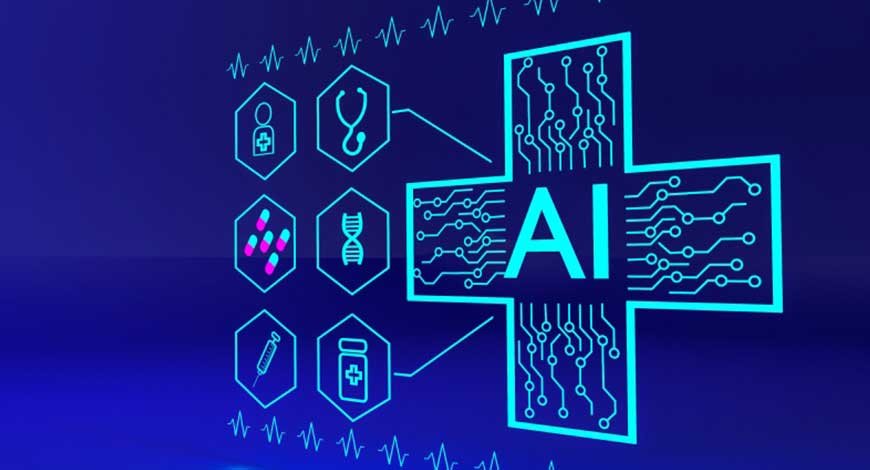How to Build a Career in Artificial Intelligence
How to Build a Career in Artificial Intelligence
Introduction
Artificial Intelligence (AI) is one of the most exciting and rapidly growing fields in the world today. From self-driving cars to virtual assistants, AI is transforming industries and creating new opportunities for professionals. If you’re fascinated by technology and want to be part of this revolutionary field, building a career in AI could be the perfect choice for you. This article will guide you through the steps to build a successful career in AI, the skills you need, the challenges you might face, and the future of this dynamic field. Whether you’re a student, a working professional, or someone looking to switch careers, this guide will help you navigate the path to becoming an AI expert.
What is Artificial Intelligence (AI)?
Understanding the Basics
Artificial Intelligence (AI) refers to the simulation of human intelligence in machines that are programmed to think, learn, and make decisions. These machines can analyze data, recognize patterns, and perform tasks that typically require human intelligence, such as problem-solving and decision-making.
Key Areas of AI
- Machine Learning (ML): A subset of AI that enables machines to learn from data and improve their performance over time without being explicitly programmed.
- Natural Language Processing (NLP): Allows machines to understand and interpret human language, enabling applications like chatbots and voice assistants.
- Computer Vision: Enables machines to interpret and analyze visual information, such as images and videos.
- Robotics: Combines AI with mechanical engineering to create robots that can perform tasks autonomously or assist humans.
Why Choose a Career in AI?
High Demand for AI Professionals
The demand for AI professionals is skyrocketing as more industries adopt AI technologies. According to a report by LinkedIn, AI specialist is one of the top emerging jobs, with a significant increase in job postings year over year.
Attractive Salaries
AI professionals are among the highest-paid in the tech industry. The combination of high demand and specialized skills makes AI careers financially rewarding.
Opportunities for Innovation
AI is a field that thrives on innovation. As an AI professional, you’ll have the opportunity to work on cutting-edge technologies and solve complex problems that can have a real impact on society.
Diverse Career Paths
AI offers a wide range of career paths, from research and development to applications in healthcare, finance, and entertainment. This diversity allows you to choose a career that aligns with your interests and skills.
Steps to Build a Career in AI
Step 1: Understand the Field
Before diving into a career in AI, it’s essential to understand the field and its various sub-disciplines. Familiarize yourself with key concepts like machine learning, deep learning, neural networks, and natural language processing. Reading books, taking online courses, and following industry news can help you build a solid foundation.
Step 2: Acquire the Necessary Education
Formal Education
A strong educational background is crucial for a career in AI. Most AI roles require at least a bachelor’s degree in a related field, such as computer science, mathematics, or engineering. Advanced roles, such as AI research scientist, often require a master’s or Ph.D.
Online Courses and Certifications
If you’re looking to switch careers or enhance your skills, online courses and certifications can be a great option. Platforms like Coursera, edX, and Udacity offer specialized AI courses and nanodegree programs that cover essential topics like machine learning, deep learning, and AI ethics.
Step 3: Develop Technical Skills
Programming Languages
Proficiency in programming languages is essential for AI professionals. Some of the most commonly used languages in AI include:
- Python: Widely used for AI and machine learning due to its simplicity and extensive libraries.
- R: Popular for statistical analysis and data visualization.
- Java: Used for building large-scale AI applications.
- C++: Known for its performance and used in AI applications that require high-speed processing.
Machine Learning Frameworks
Familiarize yourself with popular machine learning frameworks and libraries, such as:
- TensorFlow: An open-source machine learning framework developed by Google.
- PyTorch: A deep learning framework developed by Facebook.
- Scikit-learn: A Python library for machine learning and data analysis.
Data Science and Analytics
AI professionals need strong data science and analytics skills to work with large datasets. Learn how to collect, clean, and analyze data using tools like Pandas, NumPy, and SQL.
Step 4: Gain Practical Experience
Internships and Projects
Hands-on experience is crucial for building a career in AI. Look for internships, co-op programs, or entry-level positions that allow you to work on real-world AI projects. Additionally, work on personal projects or contribute to open-source AI projects to build your portfolio.
Competitions and Hackathons
Participating in AI competitions and hackathons is a great way to gain experience and showcase your skills. Platforms like Kaggle and DrivenData host competitions that challenge participants to solve real-world problems using AI.
Step 5: Build a Professional Network
Attend Conferences and Meetups
Networking is essential for career growth. Attend AI conferences, workshops, and meetups to connect with industry professionals, learn about the latest trends, and discover job opportunities.
Join Online Communities
Join online AI communities and forums, such as Reddit’s r/MachineLearning, LinkedIn groups, and AI-focused Slack channels. Engaging with these communities can help you stay updated on industry news and connect with like-minded professionals.
Step 6: Stay Updated and Keep Learning
Follow Industry News
AI is a rapidly evolving field, and staying updated on the latest developments is crucial. Follow AI blogs, podcasts, and news outlets to keep abreast of new technologies, research, and industry trends.
Continuous Learning
AI professionals need to be lifelong learners. Continuously update your skills by taking advanced courses, attending workshops, and reading research papers. Staying ahead of the curve will help you remain competitive in the job market.
Career Paths in AI
AI Research Scientist
AI research scientists work on developing new algorithms and models to advance the field of AI. They often work in academia, research institutions, or tech companies like Google, Facebook, and IBM.
Machine Learning Engineer
Machine learning engineers design and implement machine learning models and algorithms. They work on applications like recommendation systems, predictive analytics, and natural language processing.
Data Scientist
Data scientists analyze and interpret complex data to provide insights and support decision-making. They use AI and machine learning techniques to build predictive models and solve business problems.
AI Ethics Specialist
AI ethics specialists focus on the ethical implications of AI technologies. They work on ensuring that AI systems are fair, transparent, and accountable.
Robotics Engineer
Robotics engineers design and build robots that can perform tasks autonomously or assist humans. They work on applications like autonomous vehicles, drones, and industrial automation.
AI Product Manager
AI product managers oversee the development and implementation of AI-powered products. They work closely with cross-functional teams to ensure that AI solutions meet user needs and business goals.
Challenges in Building a Career in AI
High Competition
The demand for AI professionals has led to increased competition. To stand out, you’ll need to continuously update your skills and gain practical experience.
Rapidly Changing Technology
AI is a fast-evolving field, and keeping up with the latest technologies and trends can be challenging. Continuous learning and adaptability are essential for success.
Ethical and Social Implications
AI raises ethical and social concerns, such as bias in algorithms and the impact on employment. As an AI professional, you’ll need to be aware of these issues and work towards creating ethical AI solutions.
Complexity of the Field
AI is a complex and multidisciplinary field that requires a strong foundation in mathematics, programming, and data science. Building a career in AI can be challenging, but with dedication and perseverance, it’s achievable.
The Future of AI Careers
Continued Growth and Innovation
The future of AI careers looks promising, with continued growth and innovation expected in the coming years. Advances in machine learning, natural language processing, and robotics will create new opportunities for AI professionals.
Increased Focus on Ethical AI
As AI becomes more prevalent, there will be a growing focus on ensuring that it is used ethically and responsibly. This will create new roles and opportunities for AI ethics specialists and policymakers.
Integration with Other Fields
AI will continue to integrate with other fields, such as healthcare, finance, and entertainment. This will create new career paths and opportunities for AI professionals to work on interdisciplinary projects.
Global Opportunities
AI is a global field, and professionals with the right skills and experience can find opportunities worldwide. The demand for AI talent is not limited to any specific region, making it a truly global career.
Conclusion
Building a career in Artificial Intelligence is an exciting and rewarding journey. With the right education, skills, and experience, you can become part of a field that is transforming the world. While challenges exist, the opportunities for growth, innovation, and impact are immense. Whether you’re just starting out or looking to advance your career, the steps outlined in this guide will help you navigate the path to becoming an AI professional. As you embark on this journey, remember that continuous learning, adaptability, and a passion for technology are key to success in the ever-evolving world of AI.




Post Comment